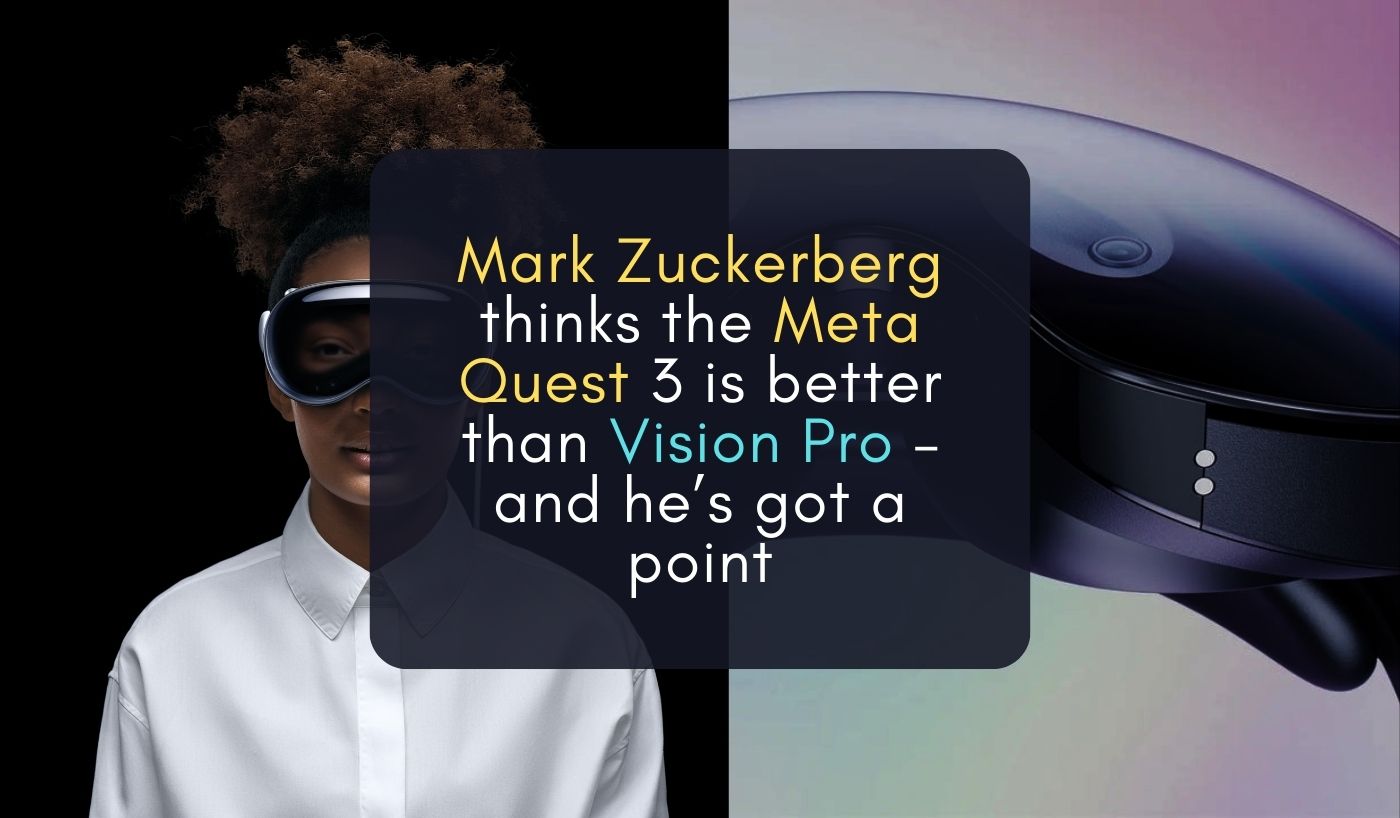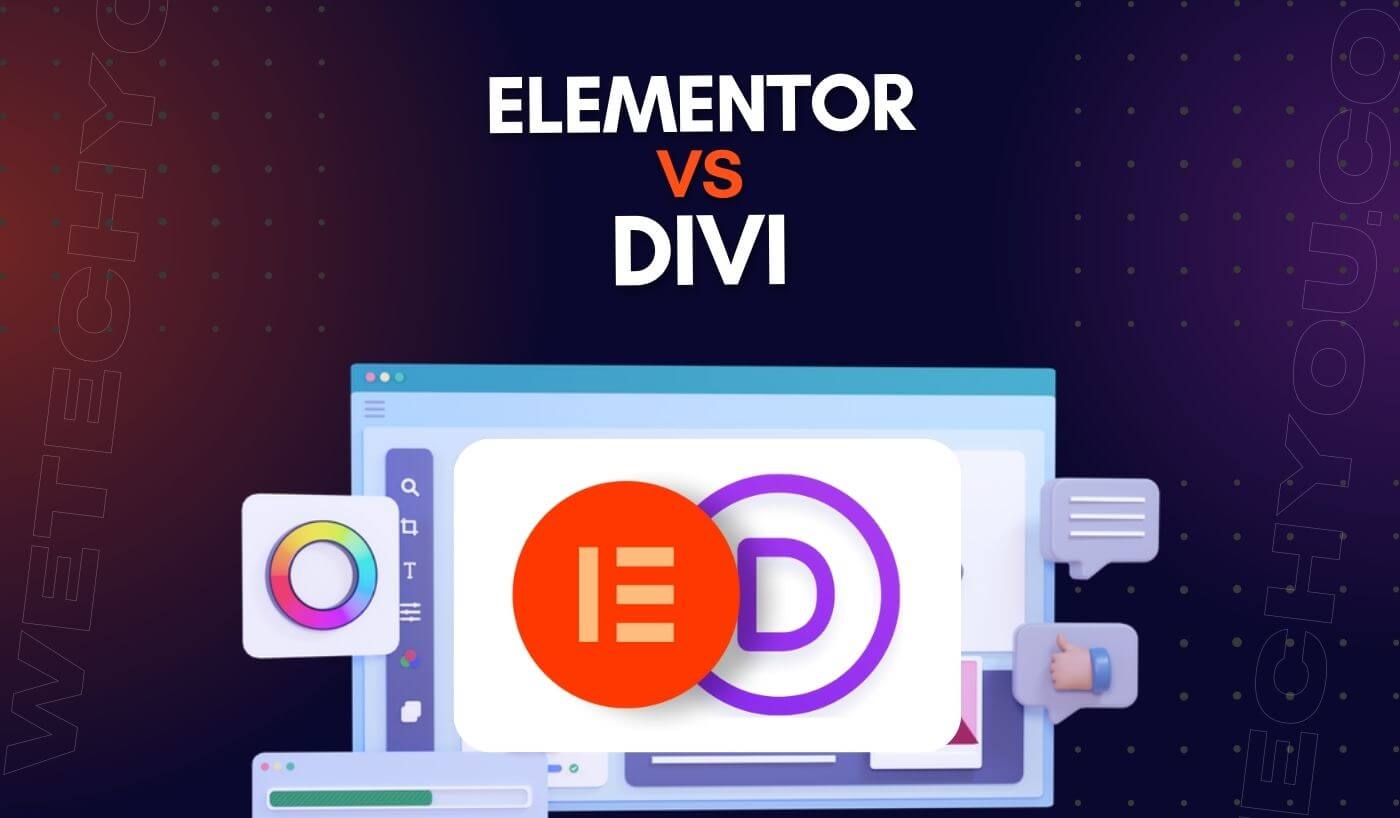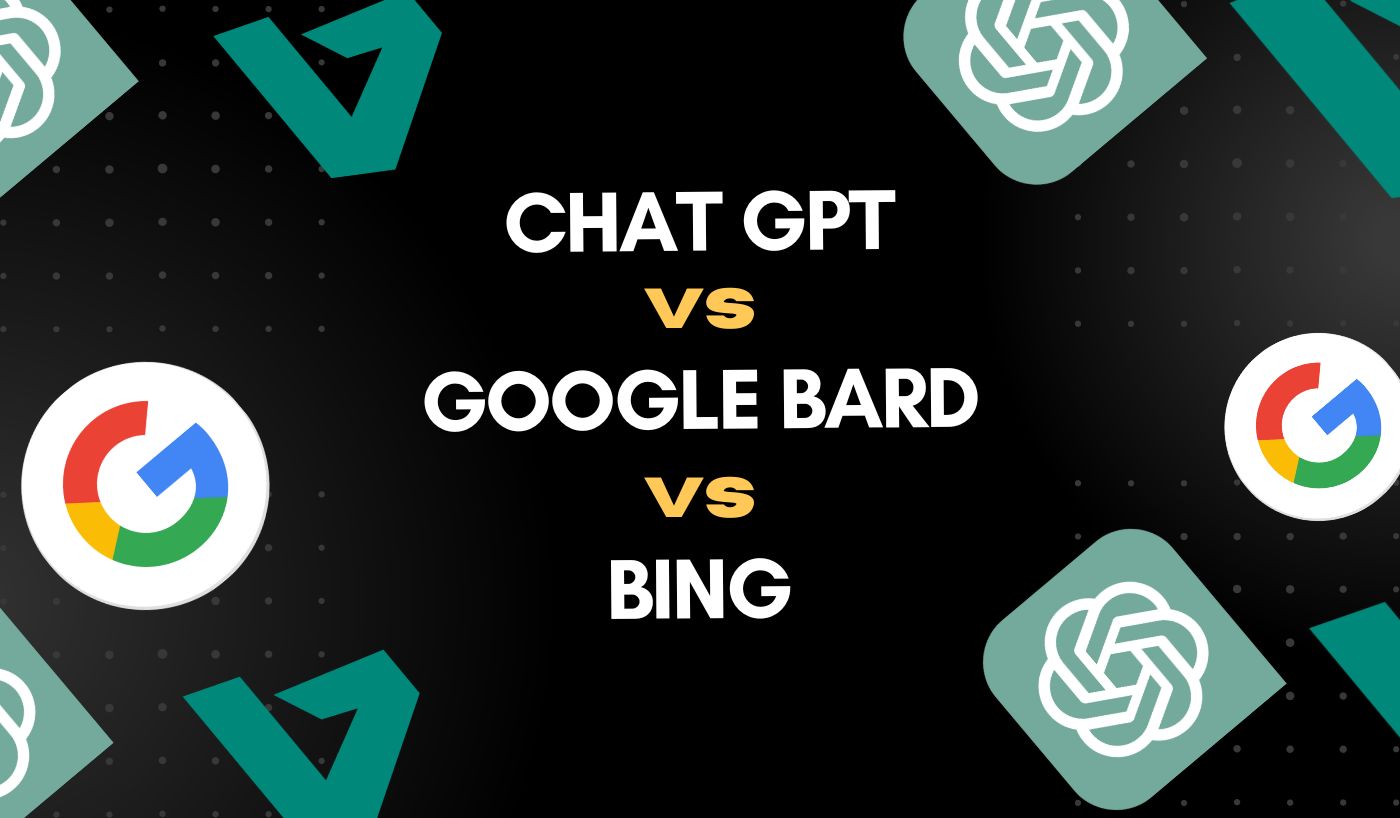Mark Zuckerberg, the founder and CEO of Facebook, recently made headlines for his enthusiastic endorsement of the new virtual reality headset, Meta Quest 3. Zuckerberg recently posted a video on his personal Instagram page, sharing his thoughts on the Meta Quest 3 and comparing it to its competitor, the Vision Pro. Mark recorded that video with Quest 3, and according to his claims, it’s much better than the Vision Pro.
The Apple headset is $3,500, which is 7 times more than the price of Meta Quest 3. However, Zuckerberg believes a higher price tag doesn’t necessarily mean a better product. But is he right? Let’s discuss the interesting facts about both the devices shared by Zuckerberg and make a fair comparison.
Features That Set Meta Quest 3 Apart from Vision Pro
Below are the key features that Mark Zuckerberg highlighted in his video comparison between Meta Quest 3 and Vision Pro:
Software Library
Meta Quest 3: Considering how Meta Quest 3 is taking the lead in the VR space with its software offerings is really fascinating. Think about it, immersion is key in virtual reality, right? That’s where Quest 3 really shines. They’ve packed their platform with exclusive titles that turn your living room into epic worlds. Games like “Asgard’s Wrath 2” and “The Light Brigade” aren’t just games – they’re full-blown adventures.
Vision Pro: It has its merits, its library seems a bit sparse in comparison. It’s got basics covered and some apps that feel like they’ve been lifted straight from an iPad, which is cool, but not quite the “enter the matrix” vibe many users seek. Quest 3, on the other hand, is all about creating that sense of “you are there” – whether that’s becoming a master golfer or surviving a zombie apocalypse. However, Vision Pro leads in the video as for now, Quest 3 lacks better streaming services as it only has Xbox and YouTube apps.
Fitness Apps
Meta Quest 3: When it comes to workout apps, Meta Quest 3 has a clear advantage. With apps like Supernatural, FitXR, and others, Quest 3 offers various engaging workouts for users to get fit while having fun. These apps use the headset’s motion-tracking capabilities and provide a full-body workout experience in virtual reality.
Vision Pro: On the other hand, Vision Pro lacks these fitness-focused apps and does not have the same level of motion tracking as Meta Quest 3. Also, its design is unsuitable for intense physical activities, making it less ideal for those looking to incorporate virtual reality into their fitness routine.
Design and Ergonomics
Meta Quest 3: Zuckerberg also mentioned in his video that the design and ergonomics of Quest 3 are superior to Vision Pro. And it’s true, Quest 3 is designed to be more comfortable for longer use with its adjustable straps, lightweight build, and balanced weight distribution. Vision Pro: Vision Pro’s bulky design can cause discomfort during extended use, and the device’s weight is not as well-distributed, leading to strain on the neck and head. Also, users need to buy expensive inserts for a better fit, which adds to the already high device cost.
Display and Graphics
Meta Quest 3 and Vision Pro have impressive display and graphics capabilities, but the two have a few key differences. While Vision Pro boasts a higher resolution of 3680 x 3140 pixels compared to Quest 3’s 2064 x 2208 pixels, Quest 3 has a higher refresh rate of 90Hz, which allows for smoother and more immersive gameplay. Also, Vision Pro’s OLED displays also have deeper blacks and better contrast than Quest 3’s LCD display. However, Quest 3 makes up for this with its superior anti-screen door effect technology, providing a clearer and more realistic visual experience.
Price
One of the biggest factors that sets Meta Quest 3 apart from Vision Pro is its price. At $499, it’s significantly cheaper than Vision Pro, with a hefty price tag of $3,500. This makes Quest 3 more accessible and affordable for a wider audience while providing a high-quality virtual reality experience. Moreover, users can customize their Quest 3 experience without breaking the bank by purchasing additional accessories, such as the Elite Strap and VR cover.
Controllers
Lastly, Zuckerberg also mentioned that he prefers the controllers of Meta Quest 3 over Vision Pro. And for good reason – the Quest 3 controllers have been praised for their ergonomics and precise tracking, providing a more intuitive and immersive gaming experience. On the other hand, Vision Pro does not come with controllers unless you are playing a game that specifically supports controllers. Therefore, users may need to rely on hand tracking or purchase additional controllers for certain games.
Zuckerberg Has a Point – But It’s Not All Black and White
While Mark Zuckerberg’s points in favor of the Meta Quest 3 hold considerable weight, the debate between choosing Meta Quest 3 or Vision Pro isn’t straightforward. Each device caters to different consumer needs and preferences. Vision Pro, with its state-of-the-art resolution and OLED display, might attract users looking for the highest visual fidelity in virtual reality, whereas Meta Quest 3, with its competitive pricing and substantial software library, appeals to the more budget-conscious user and those desiring a wide range of experiences. Consumers must also consider the ecosystem and compatibility of the devices.
Vision Pro’s ecosystem seems tailored towards a premium experience, which might suit professionals seeking VR for design, architecture, or detailed simulation work. On the other hand, Quest 3 focuses on home consumers and fitness enthusiasts, offering a mix of games and fitness apps that provide both fun and functionality without a high cost.
Eventually, Zuckerberg’s argument highlights a fundamental question in consumer electronics: is more expensive truly better, or does value for money win the day? Valid as his points are, potential VR adopters should weigh their specific needs against the offerings of each headset to make the most informed decision.




